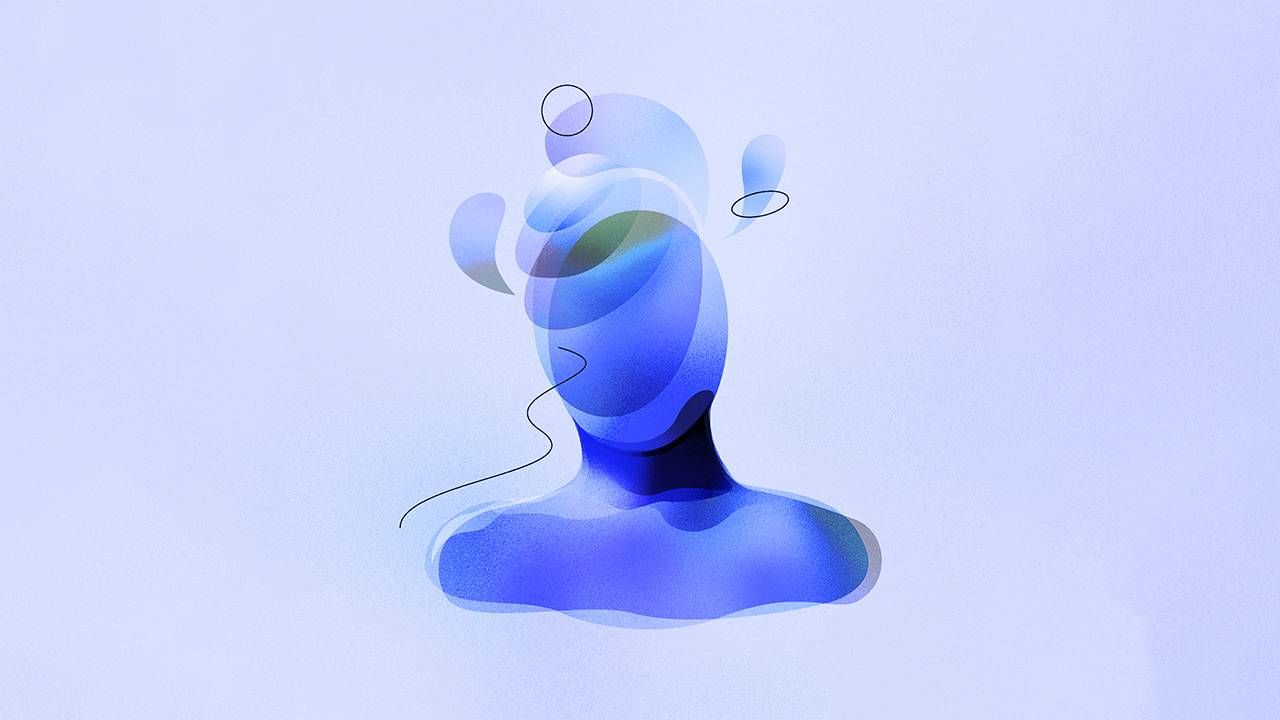My Battle With Depression Set Me on a New Path
Decades later, a writer reflects on a health scare that redefined his life
The day after I was admitted to the psychiatric ward in 1986 at what was then called Beth Israel Hospital in New York City, another patient entered my room and asked, "Would you like a bite of my apple?" After I took a bite, he cackled, "I have AIDS! And now you do, too!"

As I had no prior experience with mental health treatment, this encounter was a shock — and a warning to be on my guard. In those years, psychiatric patients roamed the hospital hallways as they pleased, with few restrictions. We were on our own, or at least it felt that way.
A strange disorder was attacking me and had worsened over several weeks.
These days, thankfully, patients who need mental health treatment are less likely to feel so alone in their struggle, thanks to greatly heightened awareness of depression and other mental illnesses.
Stigmas are fading and resources have blossomed. There are crisis hotlines you can call. Nonprofit mental health organizations and medical clinics have joined forces to intercept patients earlier in their illnesses and sometimes prevent bad outcomes.
When I got sick, at age 34, I had a full-time job at a commodities firm and rented the top floor of a house, which probably made it seem like I had my life together. But a strange disorder was attacking me and had worsened over several months. I no longer experienced pleasure and couldn't sleep.
Why Close Friends and Family Didn't Help Me
I hated my job. My boss shouted obscenities, I couldn't learn the company's order processing system and my anxiety level rose with each passing day. I went to the men's room every half hour to smoke, then every 15 minutes. It was increasingly hard to function.
One day, the secretary asked, "Are you OK?" and I replied, "Yes," but I was pretending. I went outside, smoked a pack of Merit cigarettes and threw up on the sidewalk. I had lost control and I was scared.
After that, I wandered the streets of Brooklyn for days, unable to eat or sleep. I wore holes in my shoes and never changed my shirt. I'd also lost 25 pounds and shaved the left side of my beard.
My roommate, Bill, sensed that something was wrong, but he didn't encourage me to seek help. My parents didn't know what was happening to me; I hadn't visited them in months, and we hadn't even talked by phone. Other people closest to me hadn't helped me because, in 1986, most people weren't attuned to mental health disorders, or they preferred to avoid the subject.
Finding Help in an Unexpected Place
My daily wandering somehow brought me to the very hospital where I was born. I called my best friend, Burt, from a payphone on the street. Although he had never urged me to seek help before, now he was yelling into the phone, "Go into the hospital. Do it now!"
I went inside and I told the staff that my problem was insomnia.
After sitting in the waiting room for an hour, a young psychiatrist named Dave finally talked to me. "Do you want to go home?" he asked. "Yes," I replied. "That's fine, go home," he said. But I didn't get dressed.
"I thought you were going home," he said. I repeated, "I want to go home!"
"You're agitated," he said. "I can have you admitted, but I'd prefer if you agreed to stay here. Let's go upstairs for a few days, and we'll see what's going on."
I didn't move; indecisiveness is a primary characteristic of depression.
"You need treatment, so please give it a chance."
At 2 a.m., Dave handed me a notepad and said, "Write your thoughts and feelings." I wrote, "I want relief from terrible anxiety. I can't stand feeling bad all the time. I have no relief and I can't sleep."
Following a physical exam, the hospital attendant helped me onto a stretcher. I was terrified. "They got me!" I thought.
Feeling Worse Before Feeling Better
The next morning, I signed myself out of the hospital. Then, Dave came to my room and said, "Please don't. I stayed with you half the night because I was concerned. You need treatment, so please give it a chance."
I crossed out my signature on the form.
My treatment included antidepressants and the medications made my chest and arms burn. I was on my bed rocking from side to side and moaning when the patient across the hall yelled, "Stop that!" She reported me to the front desk and I had to explain why I was moaning.
At my scheduled session with a social worker, she gave me a few magazines and a paperback. I was unable to read because I couldn't stay focused. "I see, you're very agitated," she said. "I'll be back next week."
In group therapy, I asked the leader if she had ever taken antidepressants. "No, but I learned about them in school," she replied. "Then how do you know what it feels like?" I asked. The room fell silent.
One day, when my cousin Van visited, I told him, "They're listening to me." "Who is?" he asked." I pointed to the wall, "They are — behind the wall." He nodded.
My medications didn't seem to be having any effect, even though I'd been taking them for a week. I began to wonder how – or whether - I would improve.
Making Progress
To my surprise, I was issued a day pass around this time, which allowed me to leave for six hours with a friend or relative.
Van and Burt took me to Central Park where we walked around the lake, enjoying the tree-lined paths. It felt wonderful; for the first time in months I experienced pleasure.
Just to be with them as they talked, ignoring my illness, gave me a glimmer of recovery, or normalcy. I'm sure my psychiatrist knew how important that excursion was to my recovery.
When another friend visited my room a few days later, he told me, "Sometimes it's good to have something turn you upside down." I know he meant well, and because I was emerging from my despair, I was starting to believe that my life could turn around.
Then, just three weeks after I was admitted to the hospital, my psychiatrist suddenly announced, "You can go home." I was stunned.
"The meds kicked in," he said. "I can tell you're better. Get your clothes. Who should we call?"
Easing Back Into My Life
But I was unsure that I was ready to resume life on my own. I was right. When I got home, I took my bike outside, hopped on and ran into the back of a parked car, falling over it. It was too soon.
By that autumn, though, I had a new job as transportation manager at a coffee importing firm at the World Trade Center. I also hiked in Harriman State Park every weekend, making new friends.
For the first time I could recall, I loved being alive.
One evening, while attending a piano recital at Lincoln Center, a man with a vaguely familiar face approached me.
"Hi Art, good to see you," he said.
I replied, "How do I know you?"
"I'm Dave, from Beth Israel," he said.
"Oh, hi! Good to see you," I replied.
"So how are things going?" he asked.
"I'm fine. Are you enjoying the concert?" I asked.
"Yeah, it's great. Well, nice to see you, Art," and he walked away.
Sometimes, experiencing and overcoming a terrible time can set us on a new direction, more satisfying and rewarding than the one we were on.
For me, that meant appreciating life — my health, my friends and loved ones and simple pleasures such as hiking and riding a bike. I had taken all of these gifts for granted, but my experience with depression taught me that these are the only things that matter.

Art Segal has been a published writer since 1994, with his About Men essay in The NY Times Magazine. He’s written personal essays and features for Seattle Weekly and The Seattle Globalist in recent years, and is a contributor to School Transportation News. He was born in 1952 and grew up in N.J., lived in New York City for 25 years and moved to Seattle in 1999. He has worked for Seattle Public Schools since 2010. Read More

